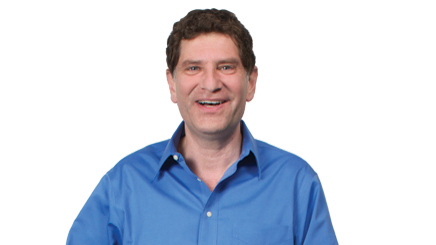Headliner_June11.pdfInternal development is key to Daiichi Sankyo Inc.’s new head, John Gargiulo, “because in order to be successful, we have to constantly be challenging ourselves to do things differently,” he says, “and that is a main focal point within the organization: innovation. Not just product innovation, but being able to do everything we do a little bit better, and it’s not just big things but also little things. Small improvements across thousands of employees become big leaps in productivity,” which translate into patient care gains, he adds.
Gargiulo was named president and CEO of DSI in April, replacing Joseph Pieroni, who retired after heading the company’s US commercial operations for 14 years. He takes the reins of the Tokyo-based company’s US unit with 3,000 employees, two-thirds of them sales reps and managers (commercial is based in Parsippany, NJ, while global R&D is in Edison). With the promotion, he moves up from SVP, commercial operations, in which he was responsible for US marketing, supply chain, managed markets and new product planning. He’s been with the company for 16 years, having joined in 1995 from Lederle, where he was a sales rep.
“I was the first commercial person they hired,” says Gargiulo. He was part of a 20-person developmental group. Their first act was to set up a joint venture with Warner-Lambert on Sankyo’s short-lived anti-diabetic drug troglitazone (Rezulin). “It was a way for us to establish ourselves because we didn’t have the critical mass,” says Gargiulo. But the company soon followed up with a solo launch of Welchol. The company then launched Benicar (a co-promote with Forest), followed by a host of line extensions—Benicar HCT, Azor, Tribenzor, and more recently, partnered with Lilly for a co-promotion deal on Effient. With its February acquisition of Plexxikon, DSI will be co-promoting vemurafenib, Plexxikon’s novel oral skin cancer drug, with Roche’s Genentech, pending approval (Genentech filed a new drug application for the drug with FDA in April).
It’s a smallish co-promote on the DSI side, with an 80/20 split in Genentech’s favor, but it’s an important move into the US oncology market for Daiichi Sankyo. DSI has an oncology heritage on the Daiichi side (Daiichi and Sankyo merged in 2005), which marketed Camptosar in the US before Pfizer took over promotion of the drug. With Plexxikon, the company also has a US research base for the first time. “We have a fairly deep oncology pipeline,” says Gargiulo, “including not just compounds in phase III but also phase II and phase I and pre-clinical.”
The company is working to expand beyond its heritage in cardiology and metabolic products through focuses on oncology, where it has made a number of acquisitions, and the development of what DSI calls “frontier” products, encouraging its research group to pursue innovative treatments outside of its two major therapeutic areas. Finally, there’s Ranbaxy, the Indian generics giant that Daiichi Sankyo acquired a 64% share of in 2008. “We talk about it as a hybrid business model,” says Gargiulo. “It’s this idea of diversification, leveraging Ranbaxy and their abilities in these emerging markets and diversifying the portfolio.”
At the moment, the company is working on two therapies in phase III—edoxaban, a factor Xa inhibitor anticoagulant, and ArQule’s tivantinib, an in-licensed C-met inhibitor for non-small cell lung cancer. Acquisitions, in-licensing and co-promote deals continue to play a big part in the company’s growth plans.
Gargiulo lives in Chester, NJ with his wife Nancy and their two kids, a son, 15, and a daughter, 12. In addition to being a Mr. Fixit type, he’s an avid gardener, beekeeper, vintner and painter of pysanky-style eggs. More exotically, he golfs, and he has a seat on PhRMA’s board of directors.
From the June 01, 2011 Issue of MM+M - Medical Marketing and Media







